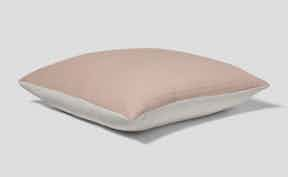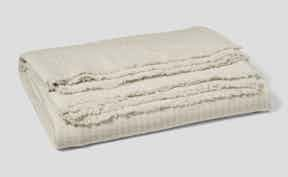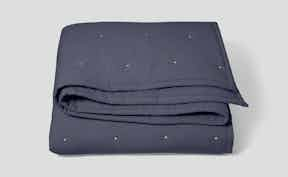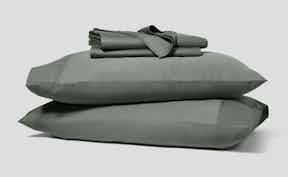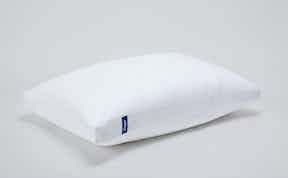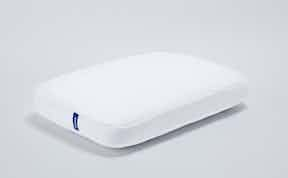Product specs
- Full / Queen92" x 96"
- King / CAL King108" x 96"
Final Sale: no trial, returns, or exchanges.
Free shipping in the US and Canada.
Select products ineligible for free shipping where indicated. Free shipping excludes Alaska, Hawaii, Yukon Territory, the Northwest Territories and Nunavut.
We ship via UPS in the United States and Canada from warehouse partners in each country.
Subject to 1 Year Limited Duvet and Blanket Warranty. Read more.
30-night, risk-free trial*
We give you 30 nights to try it on us. Don’t love it? We’ll take it back and give you a full refund.
Free shipping and returns*
Free shipping and returns are included with every order.
Exceptional customer service
Snooze specialists are available seven days a week to answer any question under the moon.
30-night, risk-free trial*
We give you 30 nights to try it on us. Don’t love it? We’ll take it back and give you a full refund.
Free shipping and returns*
Free shipping and returns are included with every order.
Exceptional customer service
Snooze specialists are available seven days a week to answer any question under the moon.
30-night, risk-free trial*
We give you 30 nights to try it on us. Don’t love it? We’ll take it back and give you a full refund.
Free shipping and returns*
Free shipping and returns are included with every order.
Exceptional customer service
Snooze specialists are available seven days a week to answer any question under the moon.
Frequently Asked Questions
Like a firm and aesthetic blanket, a bed coverlet is somewhere between a thin bedspread and a quilt. That means it can fit inside or on top of your bedding layers. There are several ways to use a lightweight coverlet set:
As bedding layers, both add warmth and comfort. However, their uses vary greatly. A coverlet is a much lighter piece of bedding often used for bed styling or light comfort, while a comforter is a heavier piece of bedding often used for warmth.
Coverlet bedspreads are multi-use—they can be decorative, supplementary, or integral parts of your bed coverings. Their thinner, single-layer design means lightweight coverage and easy removability. One day, you can layer a coverlet beneath your comforter for extra snuggles and the next, you can fold it at the foot of your bed for a pop of color.
Comforters have one primary use—they stay on top of your bedding for heavy warmth during colder months. Most comforters also have two layers: a thicker filling and a shell. When spring arrives, you can replace it with a lighter quilt and coverlet, storing the comforter for next fall.
Some people use blanket and coverlet interchangeably—and they’re pretty similar! But there are a few key differences between the two.
Both are thinner, single-layer pieces of bedding. However, a blanket is usually more plush and part of your bedding (layered between your comforter or quilt and your sheets). Coverlets often have unique patterns and designs, working as bed layers or solo pieces. Our Casper Crinkle Coverlet pairs a chic ridged texture with 100% cotton—perfect for style or snuggles.
Absolutely! On warmer nights, pair your bed coverlet and sheets for lightweight comfort. And for year-round bedroom style, place your coverlet over your bedding during the day.
Technically, you could, but we wouldn’t recommend it. Most duvet covers require a specific inner layer that fills the shell. A coverlet is usually too thin and textured to fill a duvet cover properly.
It depends on the season and the sleeper!
During the warmer months and in hotter climates, most people don’t need a comforter—a soft coverlet and sheets are exactly enough for a comfortable night’s sleep. Similarly, hot sleepers may choose a coverlet over a comforter for most of the year—in those cases, a coverlet is plenty warm.

